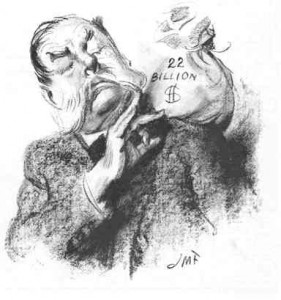
There are a set of documents at the DOT&E website which offer DOT&E insights into the reason for why about 40 programs have experienced delays — and costs. These documents relate to a Tony Capaccio story in today's Bloomberg News (below).
The document titled “Updated DOT&E Input on Program Delays” (at the DOT&E link shown above) identifies various specific reasons for the problems programs experience — different from most of the explanations from contractors and other system advocates in and out of the Pentagon. (Eg. for the F-35: Fly rates per month lowered to more realistic projections (from 12 max for all variants and venues to 10 max for CTOL/CV flight sciences, 9 max for STOVL flight sciences, 8 max for all mission systems); increased planning factors for re-fly and regression (up 15% for flight science, 10% for mission systems); more time required for software development and incremental builds.”)
Beyond the F-35, the various systems described in the analysis are typically more obscure programs (eg. AIM-9X 8.212 Software Upgrade) but there are also a few better known ones, such as LCS, which is described in “fly before buy,” Congress and the Navy want to rush ahead of testing to buy 4 LCS in the 2012 HASC DOD Authorization bill for $1.8 billion in production costs.
Availability of complete mission packages will be delayed until at least 2015.
Instead of withholding production of untested systems with clear and obvious development problems, Congress and the Pentagon are intent on business as usual. The LCS is a good example: instead of “fly before buy,” Congress and the Navy want to rush ahead of testing to buy 4 LCS in the 2012 HASC DOD Authorization bill for $1.8 billion in production costs.
Some will think the DOT&E analysis and documents to be obscure and too “in the weeds” to pay much attention to. Instead, they offer a major part of the explanation for why hardware costs and delays are so out of control, and they offer a stunning view into how little is being done about that.
BloombergNews.com, June 13, 2011








 Chapter I: Our Financial Oligarchy
Chapter I: Our Financial Oligarchy